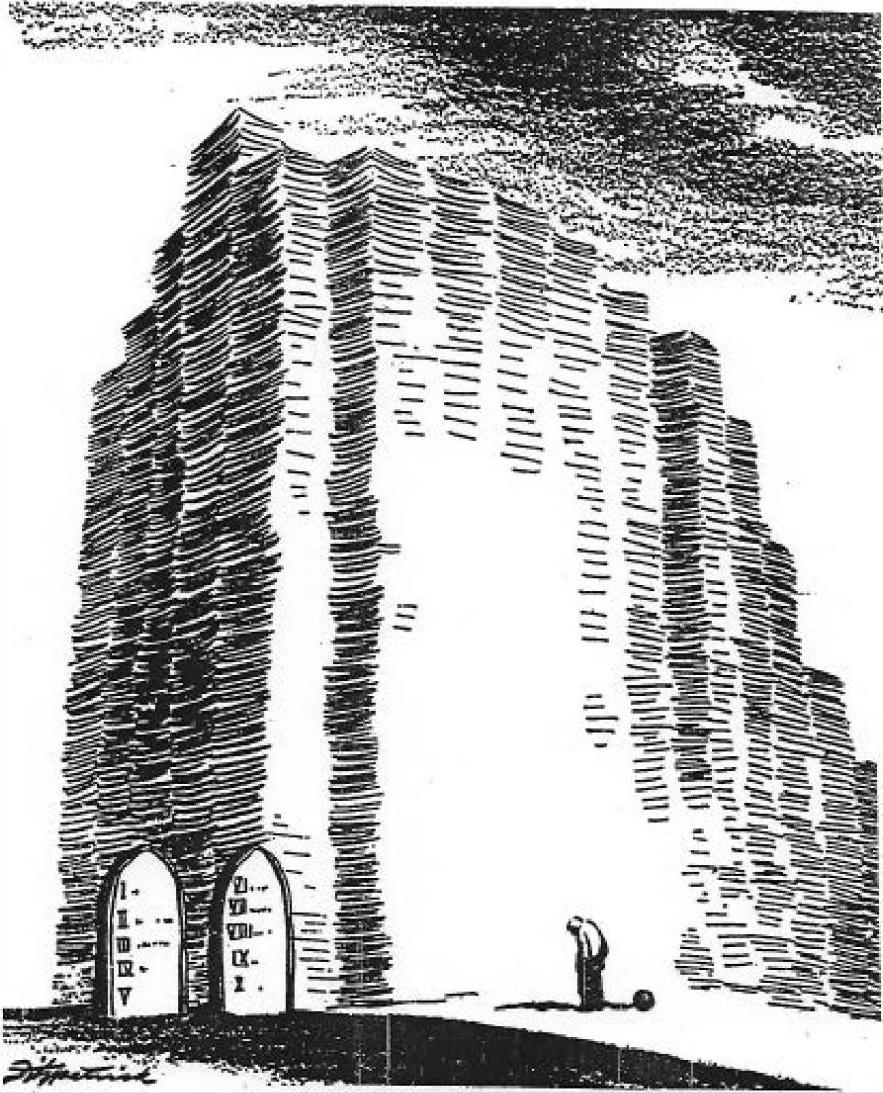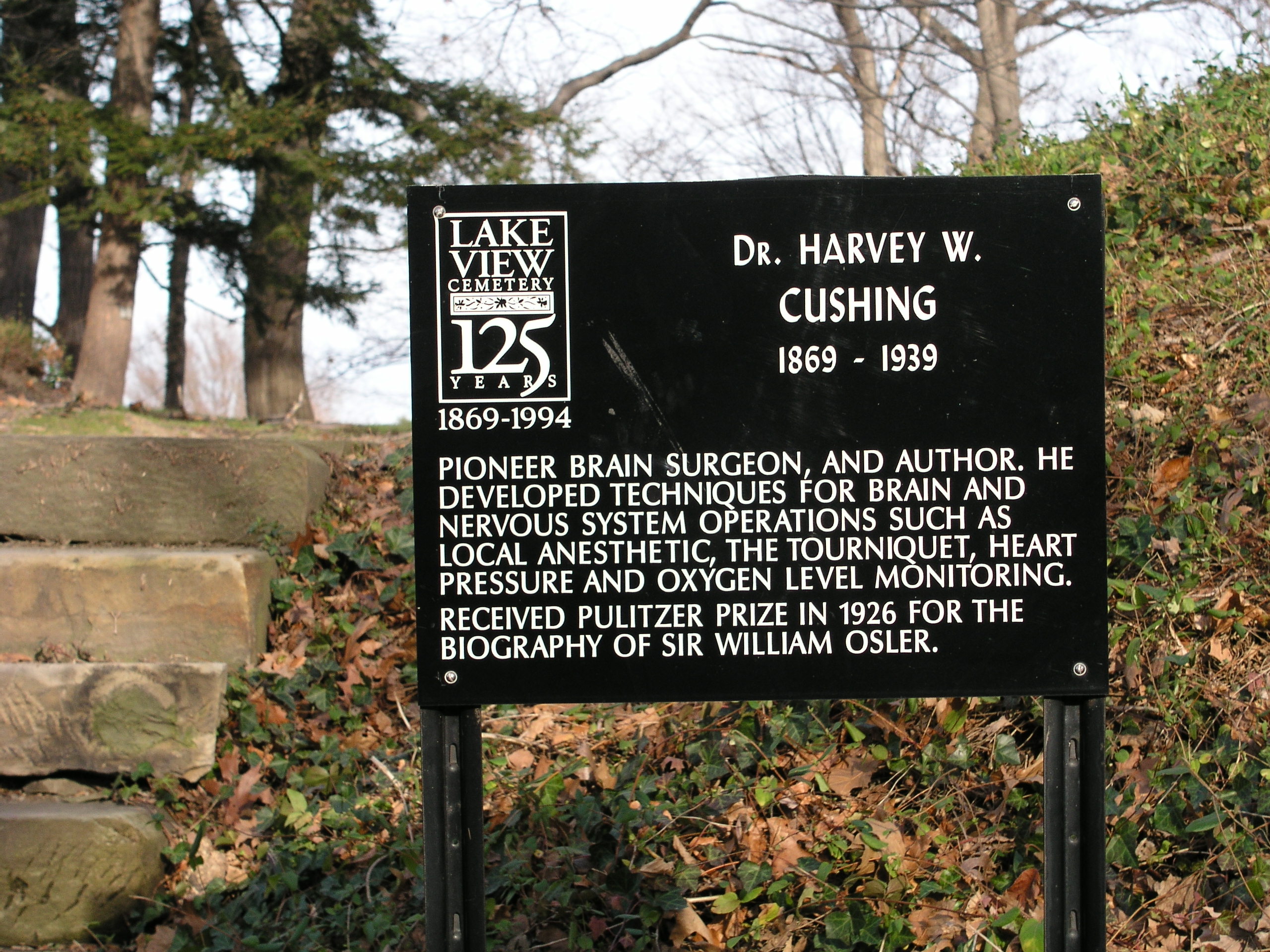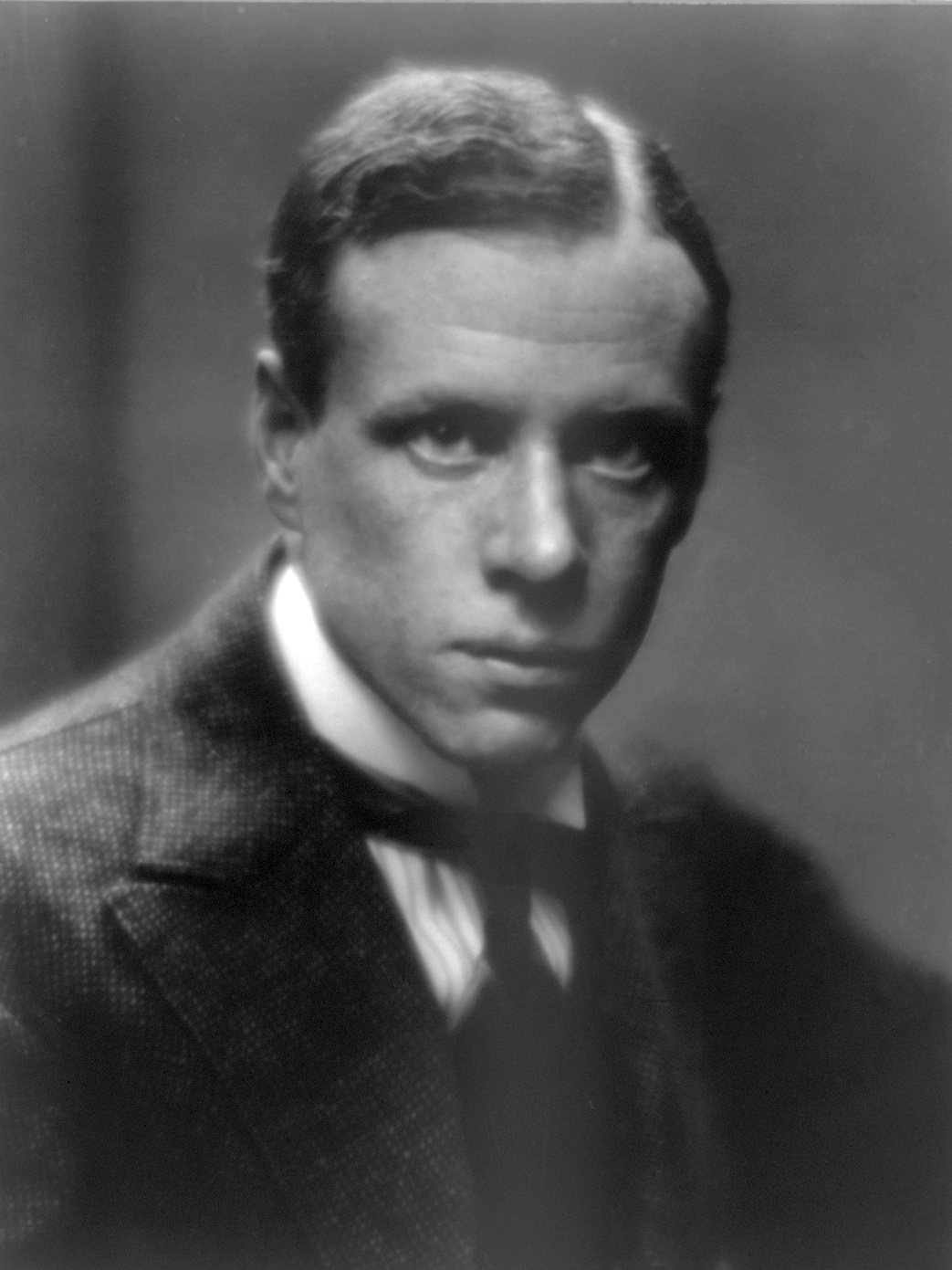|
1926 Pulitzer Prize
The following are the Pulitzer Prizes for 1926. Journalism awards *Public Service: **'' Columbus Enquirer Sun'', for the service which it rendered in its brave and energetic fight against the Ku Klux Klan; against the enactment of a law barring the teaching of evolution; against dishonest and incompetent public officials and for justice to the Negro and against lynching. * Reporting: ** William Burke Miller of ''Louisville Courier-Journal'', for his work in connection with the story of the trapping in Sand Cave, Kentucky, of Floyd Collins. * Editorial Writing: ** Edward M. Kingsbury of ''The New York Times'', for " The House of a Hundred Sorrows". *Editorial Cartooning: ** D. R. Fitzpatrick of ''St. Louis Post-Dispatch'', "The Laws of Moses and the Laws of Today".Part 2 of article Letters and Drama Awards *Novel: **'' Arrowsmith'' by Sinclair Lewis (Harcourt (publisher)) (declined) *Drama: **'' Craig's Wife'' by George Kelly (Little, Brown and Company) *History: **''A History o ... [...More Info...] [...Related Items...] OR: [Wikipedia] [Google] [Baidu] |
Pulitzer Prize
The Pulitzer Prizes () are 23 annual awards given by Columbia University in New York City for achievements in the United States in "journalism, arts and letters". They were established in 1917 by the will of Joseph Pulitzer, who had made his fortune as a newspaper publisher. Prizes in 2024 were awarded in these categories, with three finalists named for each: Each winner receives a certificate and $15,000 in cash, except in the Public Service category, where a gold medal is awarded. History Newspaper publisher Joseph Pulitzer gave money in his will to Columbia University to launch a journalism school and establish the Pulitzer Prize. It allocated $250,000 to the prize and scholarships. He specified "four awards in journalism, four in letters and drama, one in education, and four traveling scholarships". Updated 2013 by Sig Gissler. After his death on October 29, 1911, the first Pulitzer Prizes were awarded June 4, 1917; they are now announced in May. The '' Chicago Trib ... [...More Info...] [...Related Items...] OR: [Wikipedia] [Google] [Baidu] |
The Laws Of Moses And The Laws Of Today
''The'' is a grammatical article in English, denoting nouns that are already or about to be mentioned, under discussion, implied or otherwise presumed familiar to listeners, readers, or speakers. It is the definite article in English. ''The'' is the most frequently used word in the English language; studies and analyses of texts have found it to account for seven percent of all printed English-language words. It is derived from gendered articles in Old English which combined in Middle English and now has a single form used with nouns of any gender. The word can be used with both singular and plural nouns, and with a noun that starts with any letter. This is different from many other languages, which have different forms of the definite article for different genders or numbers. Pronunciation In most dialects, "the" is pronounced as (with the voiced dental fricative followed by a schwa) when followed by a consonant sound, and as (homophone of the archaic pronoun ''thee' ... [...More Info...] [...Related Items...] OR: [Wikipedia] [Google] [Baidu] |
Amy Lowell
Amy Lawrence Lowell (February 9, 1874 – May 12, 1925) was an American poet of the imagist school. She posthumously won the Pulitzer Prize for Poetry in 1926. Life Amy Lowell was born on February 9, 1874, in Boston, Massachusetts, the daughter of Augustus Lowell and Katherine Bigelow Lowell. A member of the Brahmin Lowell family, her siblings included the astronomer Percival Lowell, the educator and legal scholar Abbott Lawrence Lowell, and Elizabeth Lowell Putnam, an early activist for prenatal care. They were the great-grandchildren of John Lowell and, on their mother's side, the grandchildren of Abbott Lawrence. School was a source of considerable despair for the young Amy Lowell. She considered herself to be developing "masculine" and "ugly" features and she was a social outcast. She had a reputation among her classmates for being outspoken and opinionated. At fifteen she wanted to be a photographer, poet, and coach racer. Lowell never attended college because her fam ... [...More Info...] [...Related Items...] OR: [Wikipedia] [Google] [Baidu] |
Pulitzer Prize For Poetry
The Pulitzer Prize for Poetry is one of the seven American Pulitzer Prizes awarded annually for Letters, Drama, and Music. The award came five years after the first Pulitzers were awarded in other categories; Joseph Pulitzer's will had not mentioned poetry. It was first presented in 1922, and is given for a distinguished volume of original verse by an American author, published during the preceding calendar year. Before the establishment of the award, the 1918 and 1919 Pulitzer cycles included three Pulitzer Prize Special Citations and Awards (called at the time the Columbia University Poetry Prize) for poetry books funded by "a special grant from The Poetry Society." See Special Pulitzers for Letters. Harriet Monroe, founding publisher and long-time editor of ''Poetry'' magazine, wrote in an editorial (Apr.–Sept., 1922), "The award of a Pulitzer Prize of one thousand dollars to the ''Collected Poems of Edwin Arlington Robinson'' is a most agreeable surprise, as this is ... [...More Info...] [...Related Items...] OR: [Wikipedia] [Google] [Baidu] |
Harvey Cushing
Harvey Williams Cushing (April 8, 1869 – October 7, 1939) was an American neurosurgery, neurosurgeon, pathologist, writer, and draftsman. A pioneer of brain surgery, he was the first exclusive neurosurgeon and the first person to describe Cushing's disease. He wrote a biography of physician William Osler in three volumes. Early life and education Cushing was born in Cleveland, Ohio. His parents were Elizabeth Maria "Betsey M." Williams (sister of Edward Williams (businessman), Edward and Charles Tudor Williams, Charles Williams) and Henry Kirke Cushing, a physician whose ancestors came to Hingham, Massachusetts, Hingham, Massachusetts, as Puritans in the 17th century. Harvey, the fourth generation of a line of physicians founded by his great-grandfather Dr. David Cushing (1768–1814), was the youngest of ten children. As a child, Cushing attended the Cleveland Manual Training School, which expanded his interest in science and medicine. The school's emphasis on experimental tr ... [...More Info...] [...Related Items...] OR: [Wikipedia] [Google] [Baidu] |
Pulitzer Prize For Biography Or Autobiography
The Pulitzer Prize for Biography is one of the seven American Pulitzer Prizes annually awarded for Letters, Drama, and Music. The award honors "a distinguished and appropriately documented biography by an American author." Award winners receive US$15,000. From 1917 to 2022, this prize was known as the Pulitzer Prize for Biography or Autobiography and was awarded to a distinguished biography, autobiography or memoir by an American author or co-authors, published during the preceding calendar year. It is one of the original Pulitzers. The program was inaugurated in 1917 with seven prizes, four of which were awarded that year. Recipients In its first 97 years to 2013, the Biography Pulitzer was awarded 97 times. Two were given in 1938, and none in 1962. 1910s-1940s 1950s-1970s 1980s Entries from this point on include the finalists listed after the winner for each year. 1990s 2000s 2010s 2020s Repeat winners Ten people have won the Pulitzer for Biography or Autobiog ... [...More Info...] [...Related Items...] OR: [Wikipedia] [Google] [Baidu] |
Edward Channing
Edward Perkins Channing (June 15, 1856 – January 7, 1931) was an American historian and an author of a monumental ''History of the United States'' in six volumes, for which he won the 1926 Pulitzer Prize for History. His thorough research in printed sources and judicious judgments made the book a standard reference for scholars for decades. Channing taught at Harvard 1883–1929 and trained many PhD's who became professors at major universities. Life and works Edward Channing was born in Dorchester, Massachusetts, the fifth child of Ellen Kilshaw Fuller (1820–1856), a sister of Margaret Fuller, and William Ellery Channing (1818–1901), the poet and walking companion of Henry David Thoreau. Some months after his birth, his mother died, and he was placed out with a shoemaker and his wife in Abington, Mass. Some time around 1860, his paternal grandfather Walter Channing and his daughter took care of him. Young Edward Channing attended a private school and entered Harvard ... [...More Info...] [...Related Items...] OR: [Wikipedia] [Google] [Baidu] |
Pulitzer Prize For History
The Pulitzer Prize for History, administered by Columbia University, is one of the seven American Pulitzer Prizes that are annually awarded for Letters, Drama, and Music. It has been presented since 1917 for a distinguished book about the history of the United States. Thus it is one of the original Pulitzers, for the program was inaugurated in 1917 with seven prizes, four of which were awarded that year. The Pulitzer Prize program has also recognized some historical work with its Biography prize, from 1917, and its General Nonfiction prize, from 1962. Finalists have been announced since 1980, ordinarily two others beside the winner. Winners In its first 97 years to 2013, the History Pulitzer was awarded 95 times. Two prizes were given in 1989; none in 1919, 1984, and 1994. 1910s''–''1970s 1980s Entries from this point on include the finalists listed after the winner for each year. 1990s 2000s 2010s 2020s Repeat winners Five people have won the Pulitzer Prize fo ... [...More Info...] [...Related Items...] OR: [Wikipedia] [Google] [Baidu] |
George Kelly (playwright)
George Edward Kelly (January 16, 1887 – June 18, 1974) was an American playwright, screenwriter, director, and actor. He began his career in vaudeville as an actor and sketch writer. He became best known for his satiric comedies, including '' The Torch-Bearers'' (1922) and '' The Show-Off'' (1924). He won the Pulitzer Prize for '' Craig's Wife'' (1925). Early life Kelly was born in Philadelphia on January 16, 1887. He was the second youngest of ten children born to Mary Ann (née Costello) and John Henry Kelly, an Irish immigrant. He was the brother of American businessman and Olympic champion sculler John B. Kelly Sr. and the uncle of actress Grace Kelly, who became Princess consort of Monaco, and Olympic rower John B. Kelly Jr. Not much is known about his early life, but he was an actor in his early years. He made his professional stage debut in 1911, and spent the next several years touring in popular stage plays; among them Owen Wister's '' The Virginian''. He di ... [...More Info...] [...Related Items...] OR: [Wikipedia] [Google] [Baidu] |
Craig's Wife
''Craig's Wife'' is a 1925 play written by American playwright George Kelly. It won the 1926 Pulitzer Prize for Drama, and has been adapted for three feature films. Production ''Craig's Wife'' premiered on Broadway at the Morosco Theatre on October 12, 1925, and closed on August 21, 1926, after 360 performances. Directed by playwright Kelly, the cast featured Chrystal Herne as Harriet Craig, Anne Sutherland (Miss Austen), Charles Trowbridge (Walter Craig), and Josephine Hull (Mrs. Frazier). It was included in Burns Mantle's ''The Best Plays of 1925–1926''. The play received the 1926 Pulitzer Prize for Drama. The Pulitzer committee wrote, "''Craig's Wife'' has been selected by the jury on account of the dignity of its theme, the soundness of its construction, the excellence of its dialogue, and its effectiveness in the theater." Film adaptations There have been at least three films based on the play. The 1928 silent version was directed by William C. deMille, Cecil's b ... [...More Info...] [...Related Items...] OR: [Wikipedia] [Google] [Baidu] |
Pulitzer Prize For Drama
The Pulitzer Prize for Drama is one of the seven American Pulitzer Prizes that are annually awarded for Letters, Drama, and Music. It is one of the original Pulitzers, for the program was inaugurated in 1917 with seven prizes, four of which were awarded that year."1917 Winners" The Pulitzer Prizes. Retrieved 2013-12-20. (No Drama prize was given, however, so that one was inaugurated in 1918, in a sense.) It recognizes a theatrical work staged in the U.S. during the preceding calendar year. Until 2007, eligibility for the Drama Prize ran from March 1 to March 2 to reflect the Broadway "season" rather than the calendar year that governed most other Pulitzer Prizes. The drama jury, which consists of one academic and four critics, attends plays in New York Cit ... [...More Info...] [...Related Items...] OR: [Wikipedia] [Google] [Baidu] |
Sinclair Lewis
Harry Sinclair Lewis (February 7, 1885 – January 10, 1951) was an American novelist, short-story writer, and playwright. In 1930 Nobel Prize in Literature, 1930, he became the first author from the United States (and the first from the Americas) to receive the Nobel Prize in Literature, which was awarded "for his vigorous and graphic art of description and his ability to create, with wit and humor, new types of characters." Lewis wrote six popular novels: ''Main Street (novel), Main Street'' (1920), ''Babbitt (novel), Babbitt'' (1922), ''Arrowsmith (novel), Arrowsmith'' (1925), ''Elmer Gantry'' (1927), ''Dodsworth (novel), Dodsworth'' (1929), and ''It Can't Happen Here'' (1935). Several of his notable works were critical of American capitalism and economic materialism, materialism during the interwar period. Lewis is respected for his strong characterizations of modern working women. H. L. Mencken wrote of him, "[If] there was ever a novelist among us with an authentic call to ... [...More Info...] [...Related Items...] OR: [Wikipedia] [Google] [Baidu] |




